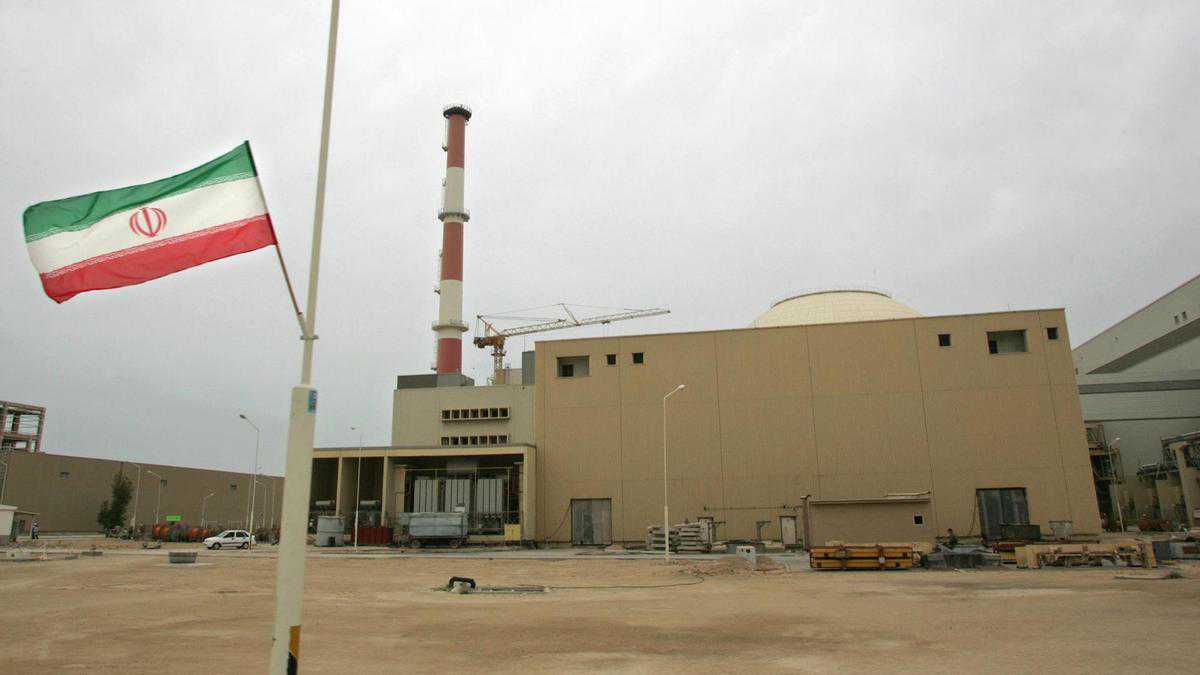Joe Biden’s pledge to re-enter Iran nuclear deal faces complications
04 December, 2020

President-elect Joe Biden continues to be committed to re-enter the Iran nuclear deal and follow-up negotiations if Tehran returned to “strict compliance”, he told THE BRAND NEW York Times on Tuesday.
However the Biden administration must offer with new complications that contain emerged since President Donald Trump withdrew from the accord in 2018.
“Lots of things possess happened since 2018 when Mr Trump left the agreement that, if not negotiated, at least have to be addressed,” Kenneth Katzman, an Iran specialist at the Congressional Research Service, told The National.
“Normally, this might presumably need to be spelt away with regards to commitments that the United States needs to make and extra Iranian commitments in terms of the innovative facilities, and perhaps new activities they have done since they stopped complying in 2019.”
Since Mr Trump’s withdrawal, Iran has began to breach major provisions of the deal, stockpiling 12 circumstances the amount of low-enriched uranium permissible and assessment advanced centrifuges barred by the agreement.
Iran in addition has started rebuilding its Natanz uranium enrichment center after a fire found in July, which Tehran has attributed to sabotage.
The International Atomic Strength Agency, which nonetheless has usage of Iranian nuclear sites as outlined under the deal, hasn't said that rebuilding Natanz breaches the nuclear pact.
But it represents yet another issue the Biden administration will have to iron out with Iran, even as it sorts through the a huge selection of sanctions the Trump administration has located on Tehran.
Those sanctions go beyond those that existed before the deal, that was signed beneath the administration of Barack Obama in 2015.
And Iran hawks in the departing Trump administration are hoping to place a lot more sanctions on Tehran within their last couple of weeks in power within an “Iran sanctions wall” designed to complicate Mr Biden’s attempts to regenerate the deal.
Mr Biden could take out several additional penalties at once using the same national security waiver used by Mr Obama and by Mr Trump before his 2018 withdrawal to supply the sanctions alleviation to that your US had focused on under the deal.
But as Mr Katzman noted: “You’re discussing hundreds and hundreds of entities that would have to be delisted.
"Iran didn’t have too kindly to the IRGC [Islamic Revolutionary Guard Corps] appearing called a foreign terrorist organisation.”
Even if Iran allowed Mr Biden to preserve Mr Trump’s 2019 terrorist designation over the IRGC and his November sanctions along supreme leader Ayatollah Ali Khamenei’s personal foundation, different sanctions present thornier issues.
“I’m pretty sure they might demand that the Central Bank no more be designated as a terrorism entity,” Mr Katzman said.
Although the US Treasury Department formally maintains an exemption on humanitarian trade with Tehran, Mr Trump’s October sanctions on the country’s Central Bank sought to cut Tehran faraway from the global economic climate.
That exacerbated its currency crisis and discouraged businesses from medical and agricultural trade with Iran as Covid-19 ravages the united states.
Iranian President Hassan Rouhani and Foreign Minister Javad Zarif have indicated that they are receptive to reviving the deal.
Nonetheless it could take a few months for Iran to rid itself of the surplus low-enriched uranium and dismantle the advanced centrifuges to come back to compliance with the accord.
That would mean US sanctions would stay in place, even at the start of the Biden administration.
The nuclear package has already turn into a political football between Iran's hardliners and the average and reformist camps prior to the presidential elections, set for June.
The assassination the other day of Iran’s top nuclear scientist Mohsen Fakhrizadeh, an act Iran blames on Israel, has prompted Iranian hardliners to push harder on the nuclear issue.
The Iranian Parliament passed a bill this week that could require the Rouhani government to ban International Atomic Strength Agency inspections and resume uranium enrichment to 20 %.
But the legislation is basically symbolic as supreme innovator Mr Khamenei has the final declare on matters linked to the nuclear programme.
All together, this may make Mr Biden’s pledge to negotiate a follow-on arrangement especially ambitious.
“In consultation with our allies and companions, we’re going to take part in negotiations and follow-on agreements to tighten and lengthen Iran’s nuclear constraints, in addition to address the missile program,” Mr Biden told The New York Times.
Mr Katzman said Iran could be willing to get some concessions on extending the deal’s sunset provisions and on its ballistic missile program, but not on its regional proxies found in Iraq, Syria, Lebanon and Yemen.
“Iran has categorically rejected any debate of limitations on its regional interventions,” Mr Katzman said.
“Iran’s view is going to be that they did not start a large amount of the conflicts, and Iran is going to be engaged at the request of specific parties.
"Iran’s look at is that everybody else is meddling in these conflicts, everyone’s intervened in these conflicts, plus they are not likely to be held to some limitations when everybody else is absolve to intervene.”
Regional conflicts aside, Mr Katzman stated it had been conceivable that Iran could consent to codify its ballistic missile selection of 2,000 kilometres in a fresh agreement.
Even though the UN arms embargo on Iran expired in October as the nuclear deal’s initial sunset provision, the first restrictions on Iran’s centrifuges do not expire until 2025.
“Reading between your tea leaves, my impression is that they might be willing to entertain extending a number of the deadlines,” Mr Katzman said.
Source: www.thenationalnews.com
